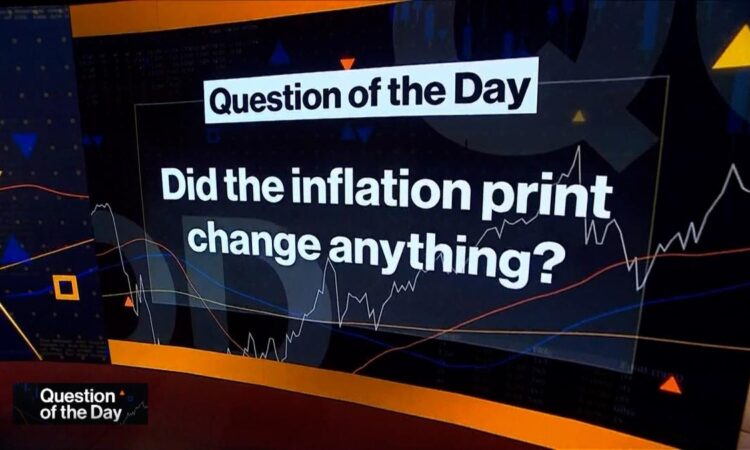
(Bloomberg) — US stocks slumped while Treasuries climbed as investors weighed hopes for a central bank pivot against the chances of a recession.
Most Read from Bloomberg
The S&P 500 fell 0.4% after data Thursday signaled a cooling jobs market and price inflation. The tech-heavy Nasdaq 100 was little changed. Disney shares dropped 8.5% after the company lost subscribers to its streaming service. Peloton Interactive slid after recalling 2.2 million exercise bikes.
Data showed US initial jobless claims reached the highest since October 2021 while producer prices rose 0.2% in April, trailing economists’ estimates for a 0.3% increase. The reports signal the Federal Reserve’s policy-tightening campaign may finally be having an effect on inflation as the central bank walks a tightrope between reining in rising prices and tipping the economy into a downturn.
“Inflation has peaked and is trending lower as growth weakens,” according to Don Rissmiller, chief economist at Strategas. The data support a Fed pause he said, though there are other risks.
“While the US does not appear to be in recession right now, there are some signs of cracks starting to appear, and global pressures remain,” he wrote.
Haven assets traded stronger, with the dollar rising and Treasury yields falling. The policy-sensitive two-year rate fell to 3.85%.
Swaps traders are pricing in more than 75 basis points of cuts this year after this week’s data.
“It’s definitely optimistic to think about a rate cut, but not so optimistic to think about a rate pause,” Sunaina Sinha Haldea, global head of private capital advisory at Raymond James, said on Bloomberg Television.
Sentiment seemed fragile with investors still worried about the US debt-ceiling and stability of the banking industry.
PacWest Bancorp was the worst performing regional lender after deposits fell 9.5% last week. The KBW Regional Banking Index slumped 2.2%. “The news headlines increased our customers’ fears of the safety of their deposits,” the company said in a regulatory filing Thursday.
Big banks were also weak after the Federal Deposit Insurance Corp. said larger lenders will face billions of extra fees to replenish the agency’s insurance fund.
Jamie Dimon said “we need to finish the bank crisis,” in a Bloomberg Television interview adding regulators should do “whatever they need to do to make it better.” JPMorgan’s chief executive officer predicted more regulations were ahead for lenders.
Elsewhere, industrial metals prices fell on the back of economic data pointing to economic weakness in China. Copper plumbed its lowest since January.
The Bank of England raised its benchmark lending rate to the highest level since 2008 and said further increases may be needed if inflationary pressures persist.
Key events this week:
-
US University of Michigan consumer sentiment, Friday
-
Fed Governor Philip Jefferson and St. Louis Fed President James Bullard participate in panel discussion on monetary policy at Stanford University, Friday.
Some of the main moves in markets:
Stocks
-
The S&P 500 fell 0.5% as of 10:52 a.m. New York time
-
The Nasdaq 100 was little changed
-
The Dow Jones Industrial Average fell 0.9%
-
The Stoxx Europe 600 fell 0.2%
-
The MSCI World index fell 0.5%
Currencies
-
The Bloomberg Dollar Spot Index rose 0.5%
-
The euro fell 0.6% to $1.0917
-
The British pound fell 0.8% to $1.2520
-
The Japanese yen fell 0.1% to 134.49 per dollar
Cryptocurrencies
-
Bitcoin fell 3% to $27,033.05
-
Ether fell 3.5% to $1,793.85
Bonds
-
The yield on 10-year Treasuries declined seven basis points to 3.37%
-
Germany’s 10-year yield declined seven basis points to 2.22%
-
Britain’s 10-year yield declined nine basis points to 3.71%
Commodities
-
West Texas Intermediate crude fell 1.7% to $71.32 a barrel
-
Gold futures fell 0.5% to $2,027.70 an ounce
This story was produced with the assistance of Bloomberg Automation.
–With assistance from Allegra Catelli.
Most Read from Bloomberg Businessweek
©2023 Bloomberg L.P.



